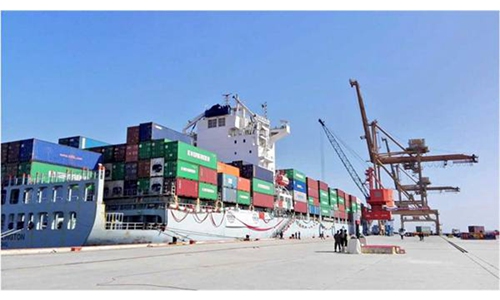COMMENTS / EXPERT ASSESSMENT
Indo-Pacific strategy upholder India misses the bus of RCEP and long-term growth

File photo
The signing of the Regional Comprehensive Economic Partnership (RCEP), which covers 15 countries and 30 percent of the global economy, undoubtedly offers a driving force for the involved economies to regain growth momentum to struggle out of the COVID-19 mire and win advantages during the post-pandemic era.But India, which has long pursued a relatively conservative economic strategy, is not on the list. After seven years of negotiation, the populous South Asia country dropped out of RCEP-related talks at the end of 2019.
With the world's second-largest number of novel coronavirus infections so far, India may miss a new round of regional industrial reconstruction and the fast lane of economic recovery.
Citing concerns over the competitiveness of Chinese products, India has been actively trying to cut economic ties with China, and once declared its intention to stay out of all international economic agreements involving China. However, the signing of the RCEP may have left India with less space to carry on with its plan of decoupling from China.
Alongside New Delhi's reckless efforts to provoke China on the borders, India intended to take the chance of the US-led "decoupling from China" campaign and take over industries that were relocating from China, which is just a wish now due to insufficient infrastructure, among India's other limitations.
The other path that India chose and bet on was getting closer to the Western world, as well as Japan and Australia, with an aim of reshaping the global industrial chain without (or with less of) the involvement of China, Asia's largest and the world's second-largest economy.
Together with Japan and Australia, India has been pushing a so-called Supply Chain Resilience Initiative (SCRI), intending to reduce reliance on Chinese industrial chains. Without any practical progress on the SCRI, now Japan and Australia are on the RCEP list, joining China, South Korea, New Zealand and 10 members of the Association of Southeast Asian Nations (ASEAN), to foster a free trade zone that is regarded as one of the largest in the world.
Meanwhile, the Indo-Pacific strategy, which India has been actively upholding with the US and others, was essentially a political or security-related strategy, and it carries little economic meaning. Driven by New Delhi's political inertia of slumping within the framework of the Indo-Pacific strategy while cutting ties with China, it has been sliding further away from the development of regional economic integration, which is a more secure and stable economic path - especially in the post-pandemic era.
Most of the Asian economies that have experienced fast growth were initially boosted by exports, a path that cannot be sustained based on a closed economy. Isolating itself from a nearby huge free trade zone will mean a loss of opportunities for the Modi administration's ambitious Make-in-India plan.
As the deadly pandemic continuously swept the world, leaders of 15 countries signed the mega trade deal via a video conference. Chinese Premier Li Keqiang said that signing of the RCEP is not only an achievement of landmark significance in East Asian regional cooperation, but also a victory of multilateralism and free trade.
Under the comprehensive and high-level RCEP, the elimination of tariff and non-tariff barriers alone is estimated to boost the economic growth of the Asian-Pacific region by 2.1 percent, and the global economy by 1.4 percent, according to Chinese economic newspaper Economic Daily.
The Indian economy has been hit hard by COVID-19 and recorded a record contraction during the April-June quarter of 23.9 percent. According to an IMF estimate, it may shrink 10.3 percent in 2020. Though the RCEP may still leave a chance for India, it will be hard for the nation to reset its direction unless New Delhi clearly realizes that its core interest has been hindered by its skewed strategy.
The author is director of the research department at the National Strategy Institute at Tsinghua University. bizopinion@globaltimes.com.cn


